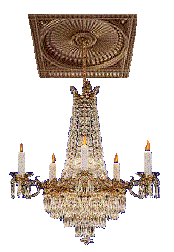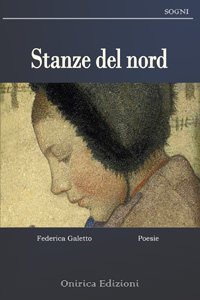
Standing Female Nude (1985)
Six hours like this for a few francs.
Belly nipple arse in the window light,
he drains the colour from me. Further to the right,
Madame. And do try to be still.
I shall be represented analytically and hung
in great museums. The bourgeoisie will coo
at such an image of a river whore. They call it Art.
Maybe. He is concerned with volume, space,
I with the next meal. You’re getting thin,
Madame, this is not good. My breasts hang
slightly low, the studio is cold. In the tea-leaves,
I can see the Queen of England gazing
on my shape. Magnificent, she murmurs,
moving on. It makes me laugh. His name
is Georges. They tell me he’s a genius.
There are times he does not concentrate
and stiffens for my warmth.
He possesses me on canvas, as he dips the brush
repeatedly into the paint. Little man,
you’ve not the money for the arts I sell.
Both poor, we make our living how we can.
I ask him, Why do you do this? Because
I have to. There’s no choice. Don’t talk.
My smile confuses him. These artists
take themselves too seriously. At night I fill myself
with wine and dance around the bars. When it’s finished
he shows me proudly, lights a cigarette. I say
Twelve francs, and get my shawl. It does not look like me.
Nudo di donna in piedi (1985)
Sei ore così per pochi franchi.
Ventre seni fondoschiena alla luce della finestra,
mi prosciuga tutto il colore. Un po’ più a destra,
Madame. E cerchi di stare ferma.
Verrò ritratta nel dettaglio e appesa
nei grandi musei. La borghesia andrà in visibilio
davanti al quadro di una puttana del Lungosenna.
La chiamano Arte.
Sarà. Lui si preoccupa di volume e spazio,
io della mia prossima cena. Sta dimagrendo,
Madame, e questo non va bene. I miei seni pendono
leggermente verso il basso, lo studio è freddo. Nelle
foglie di the, riesco a vedere la Regina d’Inghilterra
fissare la mia figura. Magnifico, mormora lei,
e passa oltre. Mi viene da ridere. Si chiama Georges.
Mi dicono sia un genio. Ci sono volte che non si
concentra e il mio calore lo eccita.
Mi possiede sulla tela, mentre affonda ripetutamente
il pennello nel colore. Poveruomo,
non li hai i soldi per le arti che vendo io.
Poveri entrambi, ci guadagniamo da vivere come possiamo.
Gli chiedo, Perché fai questo? Perché devo.
Non ho scelta. Non parlare.
Il mio sorriso lo confonde.
Questi artisti si prendono troppo sul serio.
La notte mi riempio di vino e ballo nei bar.
Quando è finito me lo mostra con orgoglio,
accende una sigaretta.Dico Dodici franchi,
e prendo lo scialle. Non sembro neppure io.
Death and the Moon (2002)
The moon is nearer than where death took you
at the end of the old year. Cold as cash
in the sky's dark pocket, its hard old face
is gold as a mask tonight. I break the ice
over the fish in my frozen pond, look up
as the ghosts of my wordless breath reach
for the stars. If I stood on the tip of my toes
and stretched, I could touch the edge of the moon.
I stooped at the lip of your open grave
to gather a fistful of earth, hard rain,
tough confetti, and tossed it down. It stuttered
like morse on the wood over your eyes, your tongue,
your soundless ears. Then as I slept my living sleep
the ground gulped you, swallowed you whole,
and though I was there when you died,
in the red cave of your widow's unbearable cry,
and measured the space between last words
and silence, I cannot say where you are. Unreachable
by prayer, even if poems are prayers. Unseeable
in the air, even if souls are stars. I turn
to the house, its windows tender with light, the moon,
surely, only as far again as the roof. The goldfish
are tongues in the water's mouth. The black night
is huge, mute, and you are further forever than that.
La Morte e la Luna (2002)
La luna è più vicina di quando la morte ti prese
alla fine dell’anno passato. Fredda come moneta
nella tasca oscura del cielo, il suo volto indurito e invecchiato
è come una maschera d’oro stanotte.
Rompo il ghiaccio sopra i pesci nel laghetto gelato,
guardo in su mentre i fantasmi del mio fiato senza parole
raggiungono le stelle.
Se stessi in punta di piedi e mi allungassi,
potrei toccare il bordo della luna.
Mi sono chinata sull’orlo della tua tomba aperta
a raccogliere un pugno di terra, pioggia greve,
duri coriandoli, e li ho lanciati. Sopra i tuoi occhi,
la tua lingua, le tue orecchie sorde, un tartagliare
come d’un codice Morse sul legno. Poi, mentre dormivo
il mio sonno vivo
il suolo ti ha inghiottito, ingoiandoti tutto,
e benché fossi là alla tua morte,
nella grotta rossa d’insopportabile pianto di vedova,
e ho misurato lo spazio fra le ultime parole e il silenzio,
non so dire dove tu sia. Irraggiungibile dalla preghiera,
anche se le poesie sono preghiere. Inaccessibile
alla vista, nonostante le anime siano stelle.
Mi volgo verso la casa, le sue finestre nella tenera luce, la luna,
certamente, lontana ancora una volta solo tanto quanto il tetto.
I pesci rossi come lingue nella bocca dell’acqua.
La notte scura è enorme, muta, e tu sei ancora più lontano di così,
per sempre.
Premonitions (2009)
Dedicated with love to the
memory of Ursula Fanthorpe (English poet, 22 July 1929 – 28 April 2009)
We first met when your last breath
cooled in my palm like an egg;
you dead, and a thrush outside
sang it was morning.
I backed out of the room, feeling
the flowers freshen and shine in my arms.
The night before, we met again, to unsay
unbearable farewells, to see
our eyes brighten with re-strung tears.
O I had my sudden wish -
though I barely knew you -
to stand at the door of your house,
feeling my heartbeat calm,
as they carried you in, home, home and healing.
Then slow weeks, removing the wheelchair, the drugs,
the oxygen mask and tank, the commode,
the appointment cards,
until it was summer again
and I saw you open the doors to the gift of your garden.
Strange and beautiful to see
the roses close to their own premonitions,
the grass sweeten and cool and green
where a blackbird eased a worm into the lawn.
There you were,
a glass of lemony wine in each hand,
walking towards me always, your magnolia tree
marrying itself to the May air.
How you talked! And how I listened,
spellbound, humbled, daughterly,
to your tall tales, your wise words,
the joy of your accent, unenglish, dancey, humorous;
watching your ash hair flare and redden,
the loving litany of who we had been
making me place my hands in your warm hands,
younger than mine are now.
Then time only the moon. And the balm of dusk.
And you my mother.
Premonizioni (2009)
Dedicata con affetto
alla memoria di Ursula Fanthorpe (Poetessa inglese, 22 Luglio 1929 – 28 Aprile 2009)
Ci incontrammo la prima volta quando il tuo ultimo respiro
si raffreddò come un uovo nel mio palmo;
tu morta, e un tordo fuori a cantare ch’era mattina.
Uscii dal retro della stanza, sentendo
i fiori rinfrescare e splendere fra le mie braccia.
La notte precedente, c'eravamo incontrate di nuovo, a ritrattare
insostenibili addii, per vedere
i nostri occhi brillare di lacrime rinfilate.
O all’improvviso ebbi il desiderio -
benché ti conoscessi appena –
di stare alla porta della tua casa,
sentendo il calmo battito del cuore,
mentre ti portavano dentro, casa, casa e guarigione.
Poi settimane lente, eliminando la sedia a rotelle, le medicine,
la maschera dell’ossigeno e la bombola, la seggetta,
le carte degli appuntamenti,
fino a che fu di nuovo estate
e ti vidi aprire le porte al dono del tuo giardino.
Strano e bellissimo vedere
le rose strette alle loro premonizioni,
l’erba profumata, fresca e verde
dove un merlo rilasciava un verme sul prato.
Eccoti là,
un bicchiere di limonata in ciascuna mano,
camminando sempre verso me, il tuo albero di magnolia
sposarsi all’aria di Maggio.
Come parlavi! E come ascoltavo io,
incantata, umile, come una figlia,
i tuoi incredibili racconti, le tue sagge parole,
la gioia del tuo accento, non inglese, ballerino, spiritoso;
guardando i tuoi capelli cinerini infiammarsi di rosso,
l’amata litania di chi eravamo state
facendo posto alle mie mani nelle tue mani calde,
ora più giovani delle mie.
Poi solo la luna a scandire il tempo. E il ristoro del crepuscolo.
E tu madre mia.
Carol Ann Duffy
Traduzione di Federica Galetto
Carol Ann Duffy su Wikipedia
http://it.wikipedia.org/wiki/Carol_Ann_Duffy








































1 commento:
Non conoscevo questa poetessa e ringrazio Federica per averla postata. Il verso lungo, l'andamento "prosastico" del ritmo, ben si accorda con un tono colloquiale, narrativo. Trovo il modo di trattare i temi della solitudine, della sofferenza, della nostalgia e del rimpianto, molto originale. Senza indugiare nel pathos, la poetessa lo fa emergere naturalmente (cito alcuni passaggi in traduzione: "Mi sono chinata sull’orlo della tua tomba aperta
a raccogliere un pugno di terra, pioggia greve,
duri coriandoli, e li ho lanciati. Sopra i tuoi occhi,
la tua lingua, le tue orecchie sorde, un tartagliare
come d’un codice Morse sul legno."), come a dire che così è la vita, a noi non resta che accettarla.
Grazie della lettura,
F.
Posta un commento